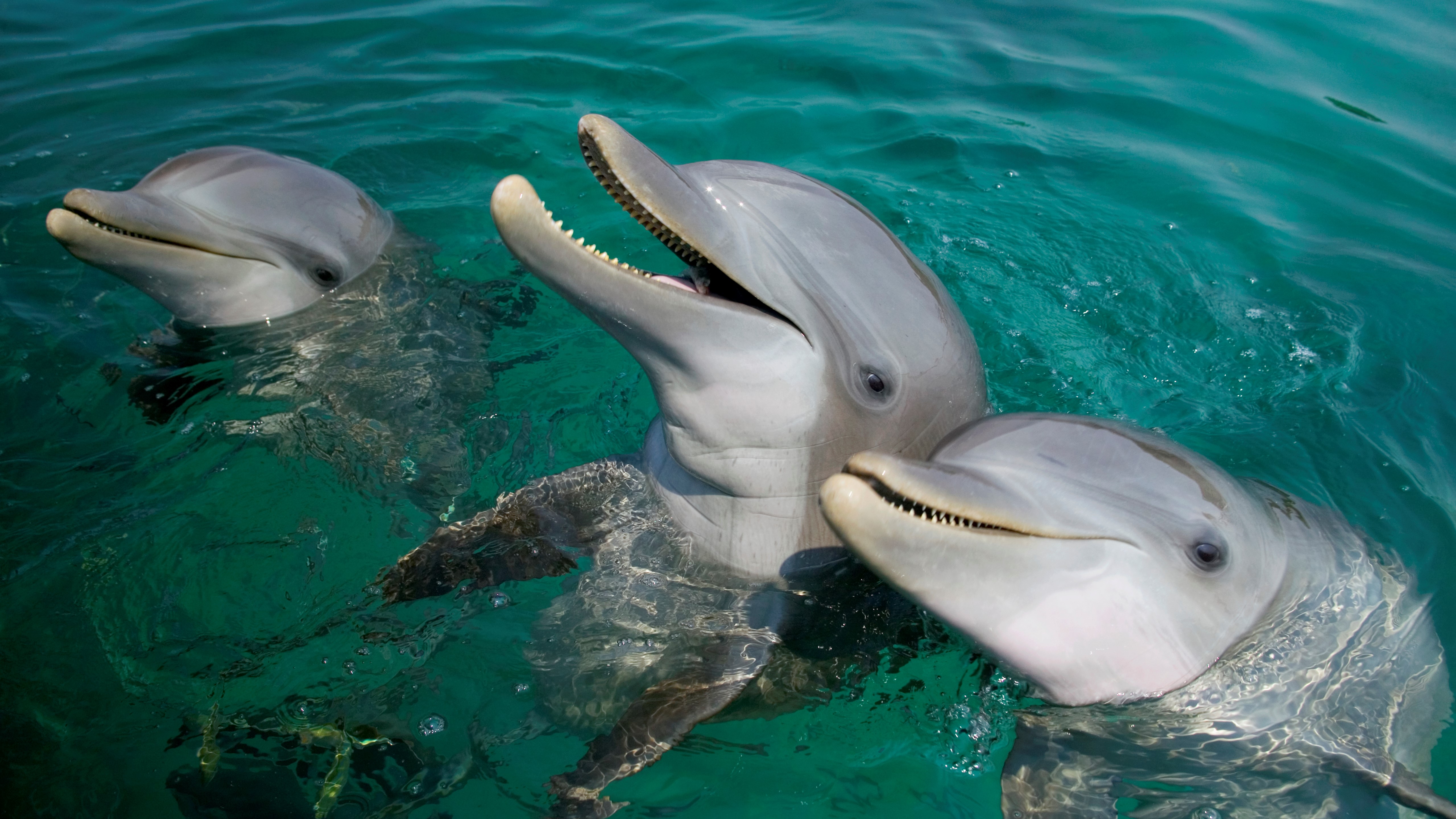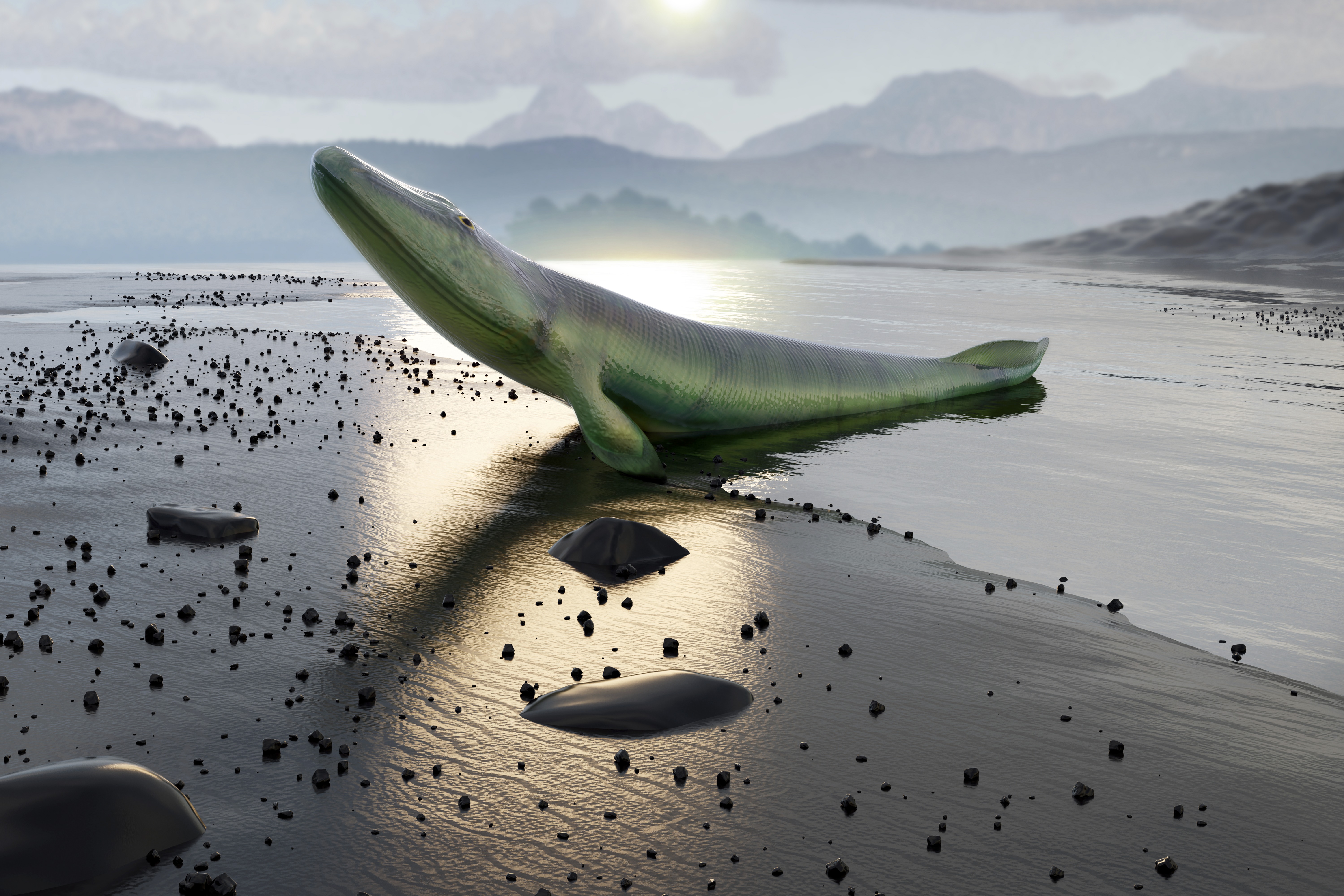Dolphins and orcas have passed the evolutionary point of no return to live on land again
Scientists have discovered that once a mammal has become fully aquatic, it passes a threshold that makes a return to terrestrial landscapes almost impossible.
Get the world’s most fascinating discoveries delivered straight to your inbox.
You are now subscribed
Your newsletter sign-up was successful
Want to add more newsletters?

Delivered Daily
Daily Newsletter
Sign up for the latest discoveries, groundbreaking research and fascinating breakthroughs that impact you and the wider world direct to your inbox.

Once a week
Life's Little Mysteries
Feed your curiosity with an exclusive mystery every week, solved with science and delivered direct to your inbox before it's seen anywhere else.

Once a week
How It Works
Sign up to our free science & technology newsletter for your weekly fix of fascinating articles, quick quizzes, amazing images, and more

Delivered daily
Space.com Newsletter
Breaking space news, the latest updates on rocket launches, skywatching events and more!

Once a month
Watch This Space
Sign up to our monthly entertainment newsletter to keep up with all our coverage of the latest sci-fi and space movies, tv shows, games and books.

Once a week
Night Sky This Week
Discover this week's must-see night sky events, moon phases, and stunning astrophotos. Sign up for our skywatching newsletter and explore the universe with us!
Join the club
Get full access to premium articles, exclusive features and a growing list of member rewards.

The chances of aquatic mammals — like orcas, bottlenose dolphins and whales — ever evolving to live on land again are almost nonexistent, a new study has found. Researchers discovered that the adaptations that allowed these animals to live in water have passed an evolutionary threshold that marks the point of no return to terrestrial life.
Between 350 million and 400 million years ago, the first fish crawled out of the water and onto land. These awkward vertebrates had the beginnings of limbs that allowed them to trundle around, and subsequent generations evolved to become the tetrapod species we see today.
Tetrapods are vertebrates with four limbs and distinct digits — a group that includes amphibians, reptiles and mammals. While most mammals stayed on land, some (starting around 250 million years ago) returned to the water, developing adaptations that allowed them to take advantage of these habitats.
The transition to land happened only once, yet the transition back to water has happened repeatedly — leading researchers to question whether aquatic mammals could readapt to terrestrial life, and if not, why?
In the new study, published July 12 in the journal Proceedings of the Royal Society B, researchers studied over 5,600 mammal species to investigate this question. They found that the move from land to water is likely "irreversible."
Related: Does evolution ever go backward?
The idea that evolution is not reversible was first put forward by Belgian paleontologist Louis Dollo in the 19th century. The principle, known as Dollo's law, states that once a complex trait is lost in a lineage over time, it is unlikely to reappear in subsequent generations.
Get the world’s most fascinating discoveries delivered straight to your inbox.
To test this idea in mammals, the researchers divided thousands of species into four categories: fully terrestrial species, those with some aquatic adaptations but that are still mobile on land, species with limited locomotion on land, and fully aquatic groups, like whales.

The researchers model examined the evolutionary relationships among species with branches indicating common ancestry. By comparing traits among these species, the researchers created models that estimated the probability of evolving specific traits.
"One of the main points of our work was to include the entire gradient of adaptations from fully terrestrial to fully aquatic forms, and to test if these adaptations were irreversible," lead study author Bruna Farina, a doctoral student at the University of Fribourg in Switzerland, told Live Science.
The team found that there is a threshold between semiaquatic and fully aquatic species, and once that threshold has been passed, the aquatic adaptations are irreversible. Transitions to aquatic environments were associated with multiple changes, including an increased body mass that helped them retain heat in colder environments and a carnivorous diet to support their heightened metabolisms. Such changes may make it difficult to compete against terrestrial lifeforms, Bruna told Live Science.
"We found that it's possible to go from fully terrestrial to semiaquatic in [small steps], but there's an irreversible threshold for some aquatic adaptations," Farina said. Therefore, the chance of fully aquatic animals, like whales and dolphins, coming back on land are virtually zero.
"While Dollo's law makes a regular appearance in macroevolutionary studies of this kind, the authors have been able to debunk the myth that sea-to-land transitions are not entirely improbable," Virag Sharma, a researcher in comparative genomics at the University of Limerick who was not involved in the study, told Live Science.
He added that the paper focuses only on mammals, so future investigations could look at whether the same irreversibilities also hold in other tetrapod lineages.
Editors note: This article has been updated for clarity on examples of fully aquatic marine mammals.

Jacklin Kwan is a freelance journalist based in the United Kingdom who primarily covers science and technology stories. She graduated with a master's degree in physics from the University of Manchester, and received a Gold-Standard NCTJ diploma in Multimedia Journalism in 2021. Jacklin has written for Wired UK, Current Affairs and Science for the People.
 Live Science Plus
Live Science Plus










